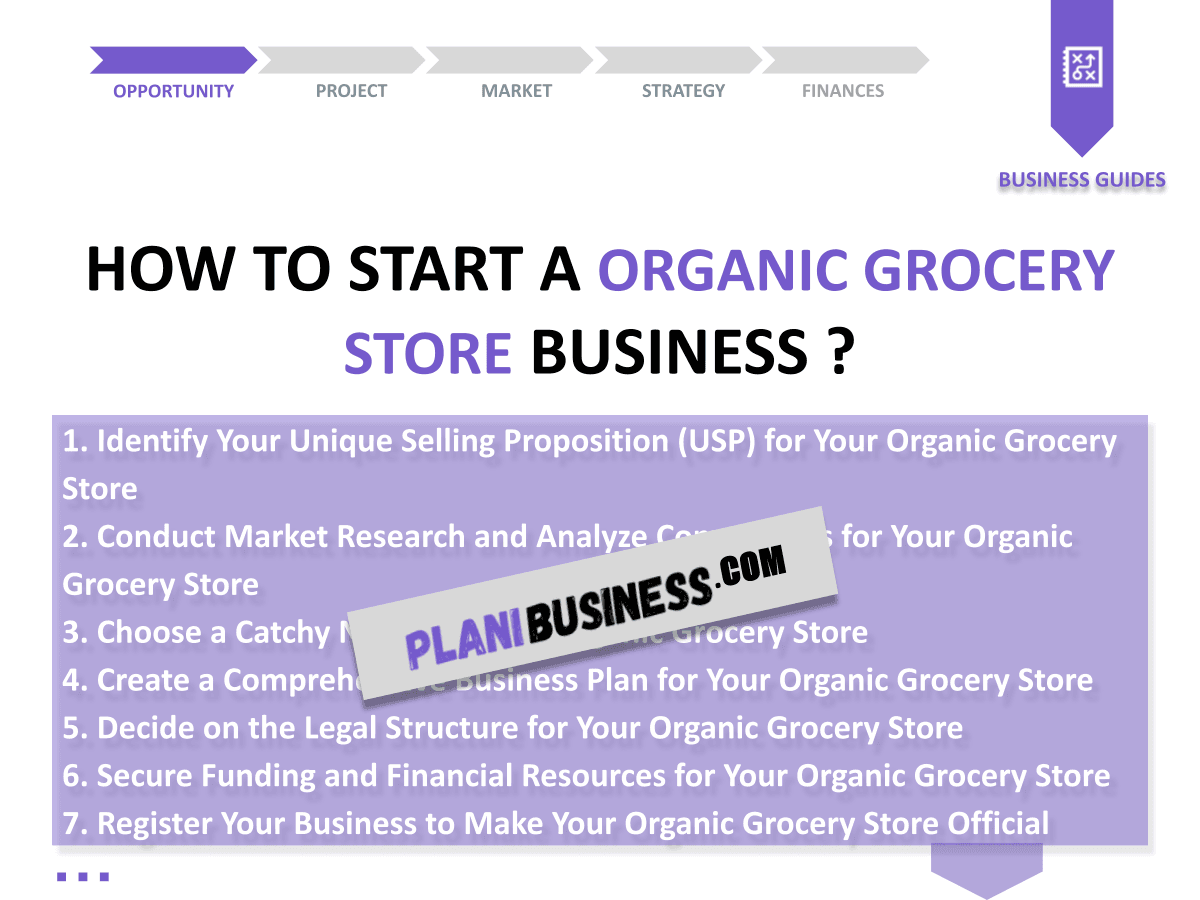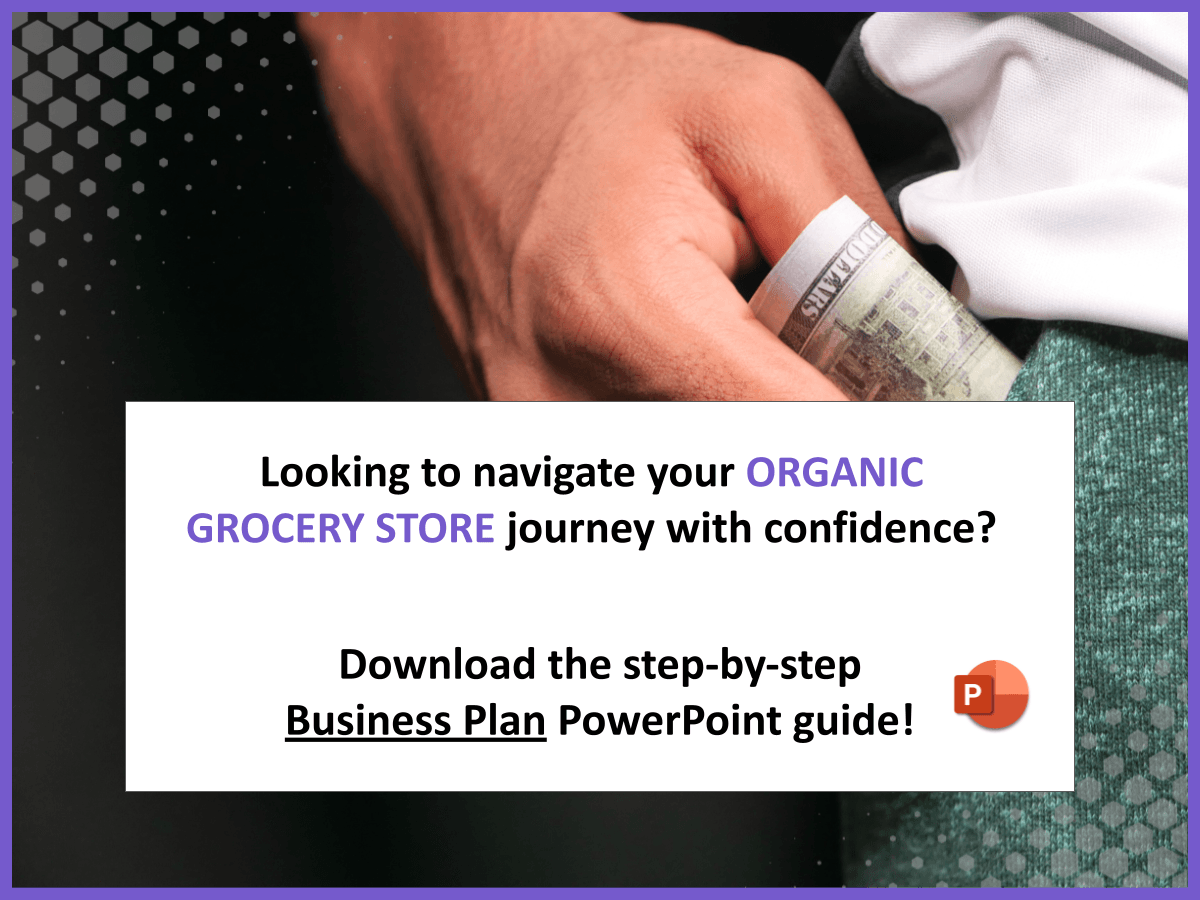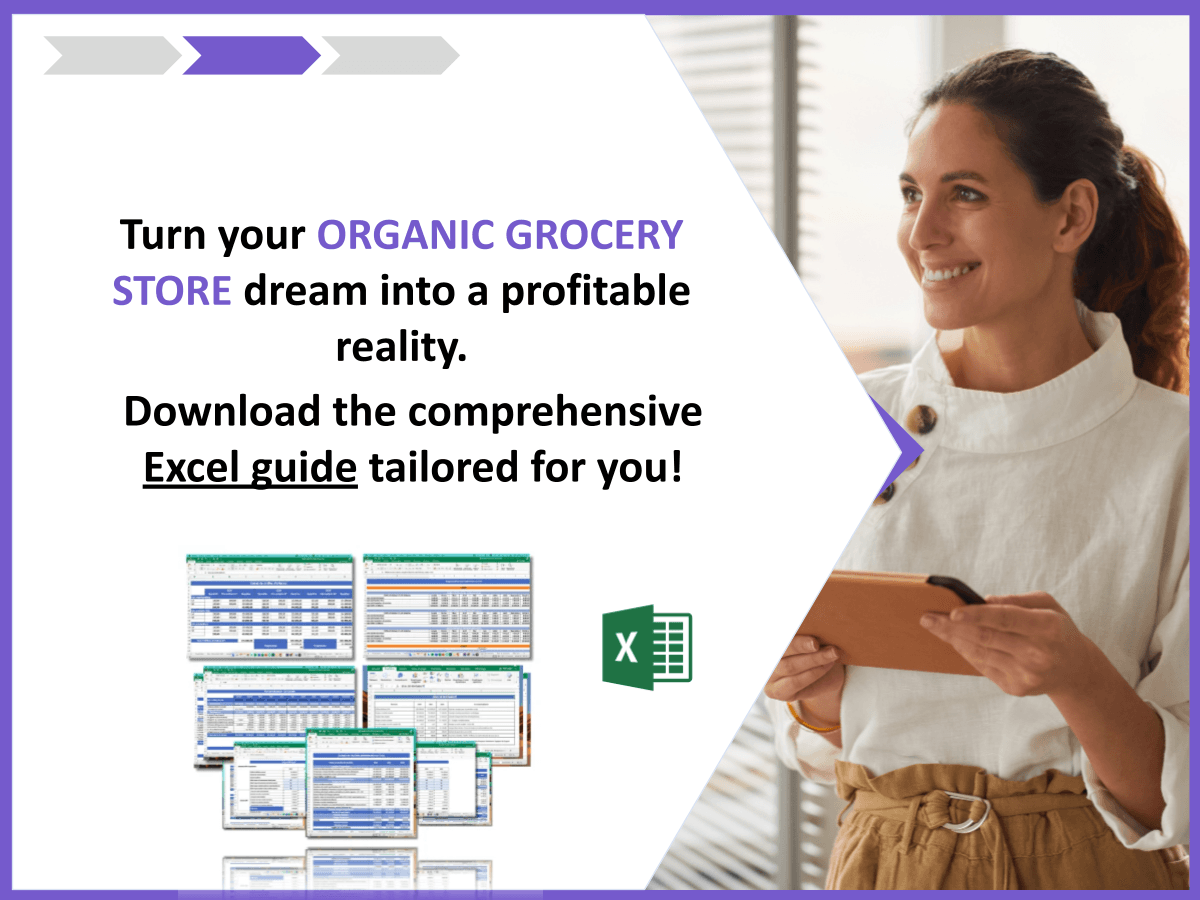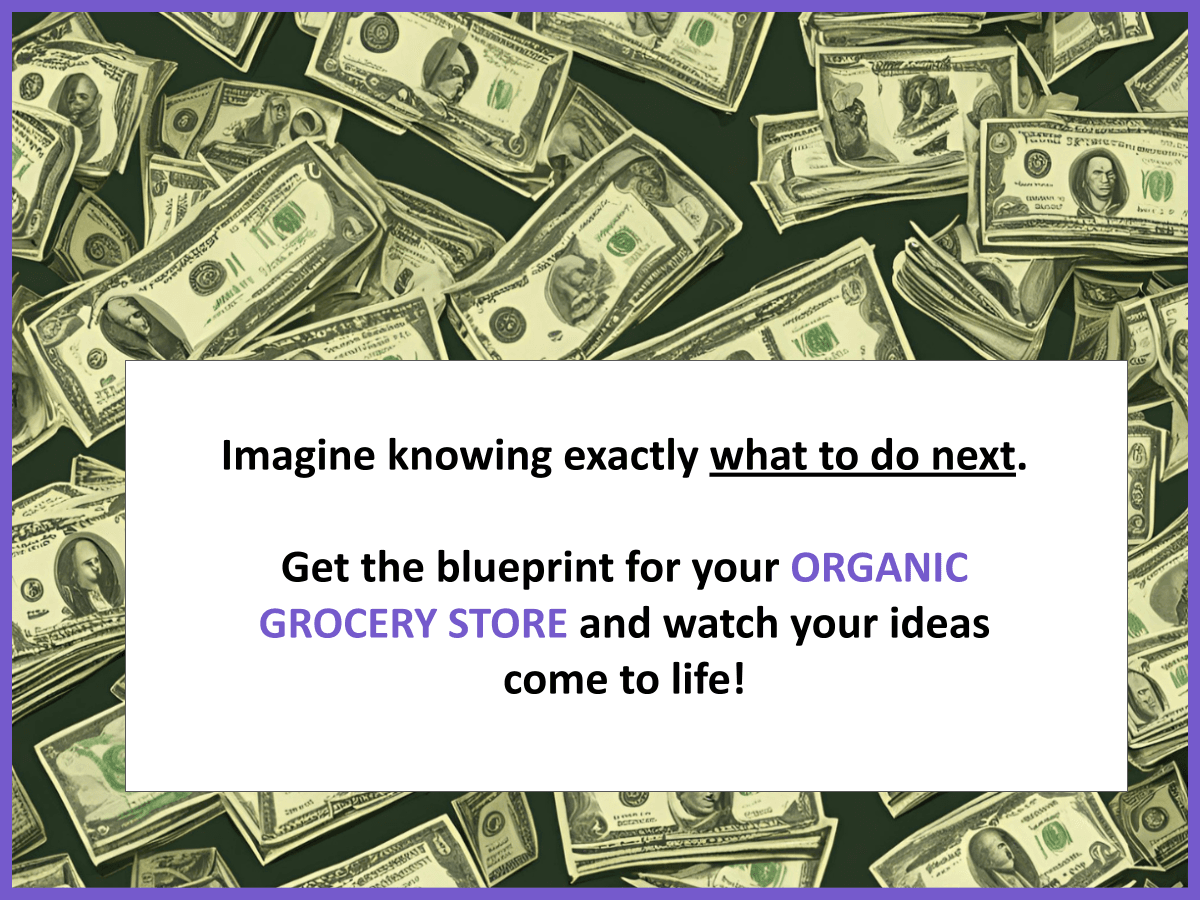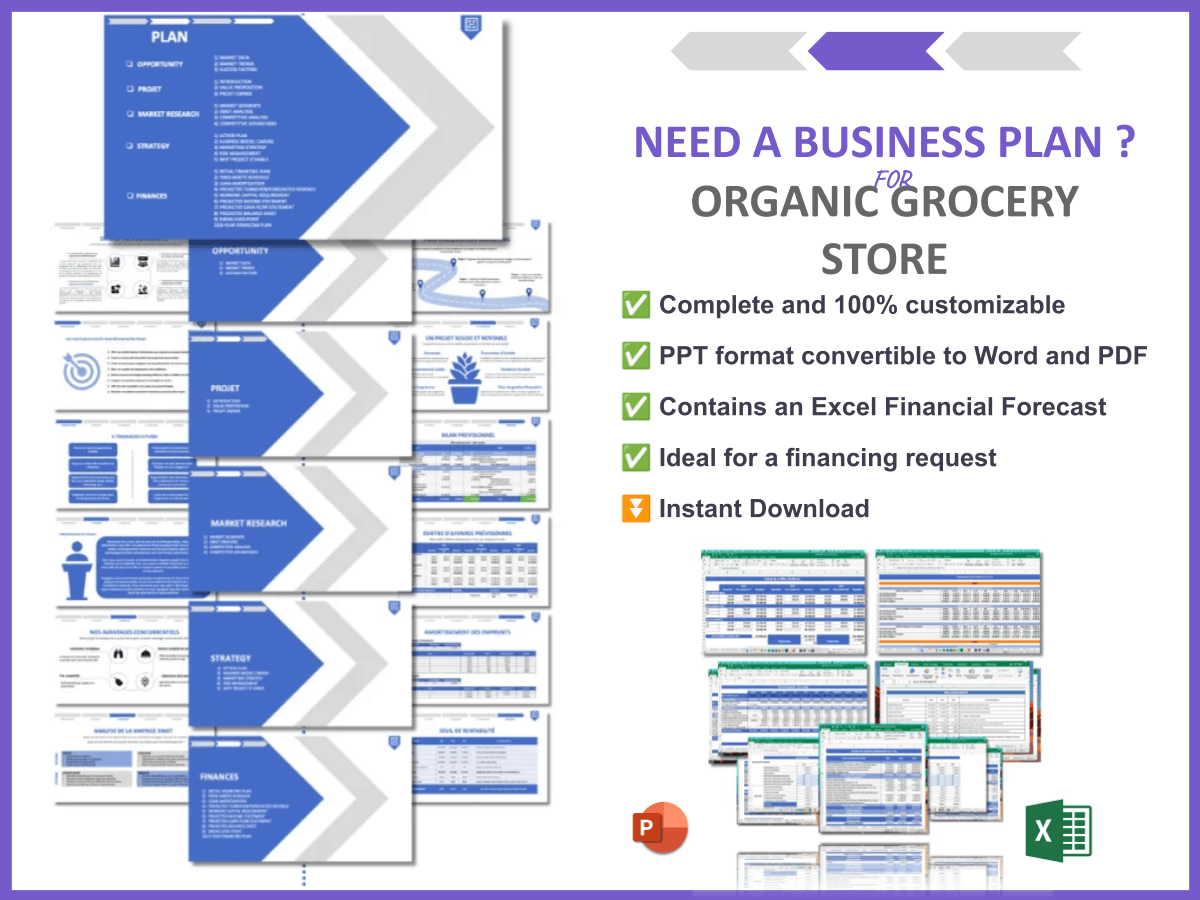Did you know that the organic food market is expected to reach over $400 billion globally by 2025? If you’re thinking about starting an organic grocery store, you’re not alone! This booming industry offers a unique opportunity for aspiring entrepreneurs who want to promote healthy living while making a profit. In simple terms, an organic grocery store focuses on selling food products that are grown without synthetic fertilizers or pesticides, catering to health-conscious consumers. In this article, we’ll explore essential steps to successfully launch your organic grocery store.
1. Identify Your Unique Selling Proposition (USP) for Your Organic Grocery Store
When starting an organic grocery store, it’s crucial to define what makes your store unique. A Unique Selling Proposition (USP) will not only help you attract customers but also differentiate you from competitors. Here are some ways to identify your USP:
- Focus on Local Produce: Emphasizing locally sourced products can appeal to community-minded shoppers.
- Specialty Items: Offering unique organic products that are hard to find in conventional stores can draw in niche markets.
- Eco-Friendly Packaging: Using sustainable packaging can attract environmentally conscious consumers.
Consider conducting surveys or informal focus groups to gather insights on what potential customers value the most. This way, you’ll have a clearer idea of how to position your store effectively.
2. Conduct Market Research and Analyze Competitors for Your Organic Grocery Store
Understanding your target market is key to the success of your organic grocery store. You need to know who your customers are, what they want, and how much they’re willing to spend. Here’s how to go about it:
- Identify Your Target Audience: Are you aiming at families, millennials, or health enthusiasts? Knowing your audience helps in tailoring your offerings.
- Study Consumer Trends: Look into current trends in organic food consumption. For instance, are more people opting for plant-based products?
- Analyze Competitors: Check out what other organic grocery stores in your area are doing. What are their strengths and weaknesses?
Here’s a simple table summarizing some effective research methods:
| Research Methods | Description |
|---|---|
| Surveys | Gather data directly from potential customers to understand their preferences. |
| Competitor Analysis | Study local competitors’ strengths and weaknesses to find your market gap. |
| Online Research | Utilize online tools to analyze consumer behavior and trends in the organic food market. |
By conducting thorough market research, you’ll be better equipped to make informed decisions that align with your customers’ needs, ultimately leading to a successful launch of your organic grocery store.
3. Choose a Catchy Name for Your Organic Grocery Store
Your store’s name is your first impression, and it should reflect its mission and appeal to your target audience. A catchy name can help you stand out in a crowded market. Here are some tips for choosing the perfect name:
- Brainstorm Ideas: Gather a list of potential names that resonate with your brand identity. Think about words associated with health, nature, and organic living.
- Check Domain Availability: If you plan to create a website (which you absolutely should), make sure the domain for your chosen name is available. This is crucial for online branding.
- Get Feedback: Share your top choices with friends, family, or even potential customers. Ask for their opinions on what resonates with them.
Remember, your name should be easy to spell and pronounce. A complicated name can confuse potential customers and make it harder for them to remember you.
4. Create a Comprehensive Business Plan for Your Organic Grocery Store
A solid business plan is essential for guiding your store’s strategy and attracting investors or lenders. It outlines your goals, target market, and financial projections. Here’s what to include in your business plan:
- Executive Summary: A brief overview of your business idea and what sets you apart.
- Market Analysis: Insights from your research on customer demographics and competitors.
- Marketing Strategy: How you plan to attract customers and promote your organic grocery store.
- Financial Projections: Estimated income, expenses, and profit margins.
I recommend checking out this business plan template for Organic Grocery Store. It’s super detailed and can save you a ton of time!
To give you a clearer picture, here’s a simple table outlining the key components of a business plan:
| Component | Description |
|---|---|
| Executive Summary | A snapshot of your business plan, highlighting the key points. |
| Market Analysis | An overview of your target market and competitive landscape. |
| Marketing Strategy | Details on how you’ll attract and retain customers. |
| Financial Projections | Estimates of revenue, expenses, and profitability over time. |
Having a well-structured business plan not only keeps you on track but also increases your chances of securing funding, should you need it. It’s like your roadmap to success!
5. Decide on the Legal Structure for Your Organic Grocery Store
Choosing the right legal structure for your organic grocery store is crucial as it impacts your taxes, liability, and how you operate your business. Here are some common structures you might consider:
- Sole Proprietorship: This is the simplest form, where you own the business outright. However, it comes with unlimited personal liability.
- Limited Liability Company (LLC): An LLC offers personal liability protection while allowing for flexible management. It’s a popular choice for small businesses.
- Corporation: A corporation is more complex and offers the most protection from personal liability, but it also requires more paperwork and regulations.
When deciding on your legal structure, consider factors like your budget, the number of owners, and how much personal liability you’re willing to take on. It might be helpful to consult with a legal expert to make the best decision for your situation.
Here’s a quick table comparing these legal structures:
| Legal Structure | Pros | Cons |
|---|---|---|
| Sole Proprietorship | Easy to set up and manage | Unlimited personal liability |
| LLC | Limited liability protection | More paperwork and fees |
| Corporation | Strong personal liability protection | Complex setup and ongoing regulations |
6. Secure Funding and Financial Resources for Your Organic Grocery Store
Securing the right funding is one of the most critical steps in starting your organic grocery store. You need to determine how much capital you need to cover startup costs, including inventory, equipment, and rent. Here are some options to consider:
- Personal Savings: Using your savings is a straightforward way to fund your business, but it comes with risk.
- Bank Loans: Traditional loans can provide the necessary funds, but you’ll need a solid business plan to convince lenders.
- Investors: Bringing in investors can provide capital without incurring debt, but you may have to give up some control.
To ensure you’re fully prepared, create a detailed budget that outlines all potential expenses and how much funding you’ll need. This will help you when approaching banks or investors.
Also, consider applying for grants or small business competitions that focus on promoting organic and sustainable businesses. These can provide a financial boost without the need for repayment!
7. Register Your Business to Make Your Organic Grocery Store Official
Once you’ve developed your business plan and secured funding, the next step is to officially register your organic grocery store. This process involves a few important tasks:
- Choose a Business Name: Ensure that your chosen name is unique and not already in use by another business. You can check this through your local business registry.
- File for Registration: Depending on your location, you may need to file for a business license or register your business name with the state or local government.
- Obtain a Tax ID Number: This number is essential for tax purposes and allows you to hire employees, open a bank account, and file your taxes.
By completing these steps, you not only make your business official but also set the foundation for legal and financial operations. Be sure to keep all your registration documents in a safe place for future reference.
8. Obtain Necessary Tax Identification Numbers, Licenses, and Permits for Your Organic Grocery Store
Before opening your organic grocery store, it’s essential to obtain the necessary tax identification numbers, licenses, and permits. This ensures that you operate legally and avoid any fines or penalties. Here’s what you need to consider:
- Tax Identification Number (TIN): This number is required for tax purposes and is typically obtained through the IRS.
- Business Licenses: Most cities or states require businesses to have a general business license. Check your local regulations to understand what’s needed.
- Health Permits: Since you’ll be selling food, you may need specific health permits to ensure compliance with food safety regulations.
It’s also a good idea to research any additional permits that may be specific to selling organic products, as these can vary by location.
Here’s a quick table summarizing the essential permits and licenses you may need:
| License/Permit | Description |
|---|---|
| Business License | Required to legally operate your business in your locality. |
| Health Permit | Ensures compliance with health and safety regulations for selling food. |
| Sales Tax Permit | Allows you to collect sales tax on your products. |
By ensuring you have all the necessary licenses and permits, you can confidently open your organic grocery store, knowing that you are compliant with local laws.
9. Apply for Business Insurance Coverage for Your Organic Grocery Store
Protecting your investment with the right business insurance is crucial when starting your organic grocery store. Insurance helps shield you from potential risks and liabilities. Here are the main types of insurance you should consider:
- General Liability Insurance: This covers claims related to bodily injury, property damage, and personal injury that may occur in your store.
- Property Insurance: Protects your physical assets, including inventory and equipment, from theft, fire, or other disasters.
- Workers’ Compensation Insurance: If you plan to hire employees, this insurance is typically required by law and covers medical costs and lost wages for work-related injuries.
Before choosing an insurance provider, it’s a good idea to shop around and compare quotes. You can also consult with an insurance broker who specializes in small businesses to help you find the best coverage for your needs.
Here’s a table summarizing the essential types of insurance for your organic grocery store:
| Type of Insurance | Description |
|---|---|
| General Liability | Covers legal claims for injuries or damages related to your business operations. |
| Property Insurance | Protects your business property from risks like theft and fire. |
| Workers’ Compensation | Covers medical expenses and wages for employees injured on the job. |
10. Set Up Your Financial Management Systems for Your Organic Grocery Store
Establishing a robust financial management system is essential for the success of your organic grocery store. Proper financial management helps you track income and expenses, manage cash flow, and prepare for taxes. Here’s how to set up an effective system:
- Choose Accounting Software: Investing in good accounting software can simplify tracking your finances. Popular options include QuickBooks, FreshBooks, and Xero.
- Set Up a Business Bank Account: Keeping your personal and business finances separate is crucial for accurate bookkeeping and tax purposes.
- Hire an Accountant: If your budget allows, consider hiring an accountant to help manage your books and provide financial advice.
By implementing a solid financial management system, you can make informed decisions, keep your business running smoothly, and ultimately achieve your goals. Remember, staying organized and proactive with your finances can save you a lot of headaches down the road!
11. Establish Your Brand Identity for Your Organic Grocery Store
Your brand identity is the image your organic grocery store projects to the world, and it should resonate with your target audience. A strong brand helps build customer loyalty and sets you apart from competitors. Here are some key elements to consider when establishing your brand identity:
- Logo Design: Your logo is often the first thing customers will see. Make sure it reflects the essence of your store and is visually appealing.
- Store Aesthetic: The design and layout of your store should align with your brand identity. Consider using natural materials and earthy colors to create a welcoming atmosphere.
- Marketing Materials: Your business cards, brochures, and online presence should all have a consistent look and feel that reflects your brand.
Consistency is key. Ensure that every touchpoint, from your website to your physical store, communicates your brand’s values and mission. This will help customers connect with your business on a deeper level.
12. Develop a Professional Website for Your Organic Grocery Store
In today’s digital age, having a professional website is essential for your organic grocery store. A website not only serves as a marketing tool but also as a platform for customer engagement. Here are some important elements to include:
- User-Friendly Design: Ensure your website is easy to navigate. A clean layout helps customers find what they need quickly.
- Product Listings: Include detailed descriptions and high-quality images of your products. This helps customers make informed choices.
- Contact Information: Make it easy for customers to reach you. Include a contact form, phone number, and email address.
Additionally, consider adding a blog section to share tips on organic living, recipes, and store updates. This can help drive traffic to your site and position you as an authority in the organic food space.
13. Market and Advertise Your Organic Grocery Store
Finally, you need a solid marketing strategy to attract customers to your organic grocery store. Here are some effective marketing tactics to consider:
- Social Media Marketing: Utilize platforms like Instagram and Facebook to showcase your products, share customer testimonials, and engage with your community.
- Local Advertising: Consider flyers, local newspaper ads, or sponsoring community events to raise awareness about your store.
- In-Store Promotions: Host events like product tastings or workshops to draw in customers and encourage them to explore your offerings.
It’s also helpful to track the effectiveness of your marketing efforts. Use tools like Google Analytics to monitor website traffic and social media insights to measure engagement. Adjust your strategies based on what works best for your audience.
By following these steps, you’ll be well on your way to launching a successful organic grocery store. Remember to stay flexible and adapt as you learn more about your market and customers. Good luck!
Conclusion
Starting an organic grocery store can be a rewarding venture, both personally and financially. By following the steps outlined in this guide, you’ll be well-equipped to navigate the challenges of launching your business. Remember, having a clear business plan, understanding your market, and effectively marketing your store are crucial for success.
As you embark on this journey, consider exploring additional resources to further enhance your knowledge. Check out our articles on how to create a SWOT Analysis for Organic Grocery Store and how to create an Organic Grocery Store Marketing Plan with Example. These can provide valuable insights and strategies to help you thrive in the organic food industry.
FAQ
- What are the key steps to starting an organic grocery store?
The key steps include conducting market research, creating a comprehensive business plan, registering your business, obtaining necessary licenses, securing funding, and establishing a marketing strategy.
- How much money do I need to start an organic grocery store?
The amount varies widely depending on location, store size, and inventory. On average, you might need between $50,000 to $150,000 to cover startup costs.
- Do I need a license to sell organic products?
Yes, you will need to obtain a business license and possibly specific permits related to food sales, depending on your local regulations.
- What are the benefits of selling organic products?
Benefits include catering to a growing market of health-conscious consumers, promoting sustainability, and potentially higher profit margins on organic items.
- How can I market my organic grocery store effectively?
Utilize social media, local advertising, in-store promotions, and community events to engage your audience and promote your offerings.
- What products should I sell in my organic grocery store?
Focus on a variety of organic produce, dairy, grains, snacks, and specialty items that cater to your target market’s preferences.
- How can I ensure the quality of my organic products?
Establish relationships with reputable suppliers and conduct regular quality checks to maintain the standards of your organic offerings.
- Is it necessary to have a website for my organic grocery store?
Yes, having a professional website is essential for online visibility, customer engagement, and providing information about your products and services.
- What are the common challenges faced by organic grocery stores?
Challenges may include competition from larger grocery chains, managing supply chains, and fluctuating consumer demand for organic products.
- How can I keep my customers coming back?
Offer exceptional customer service, loyalty programs, and regular promotions. Engaging with your community and maintaining a strong online presence can also help retain customers.

